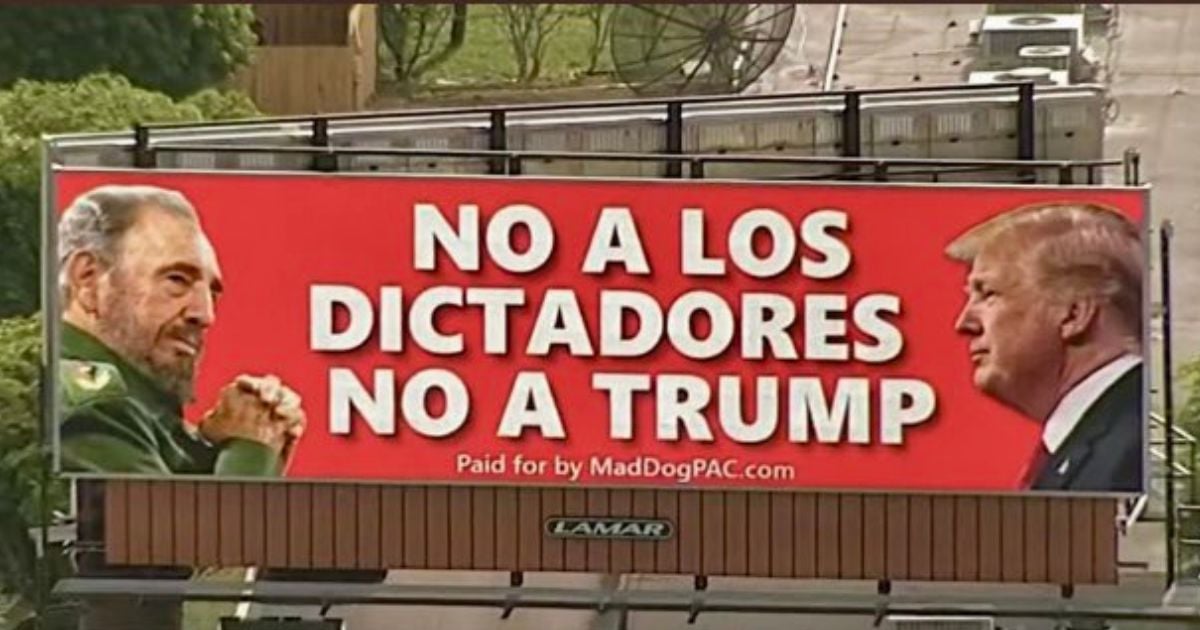
A group of Cubans demonstrated this Wednesday on a Miami highway in response to a billboard that compares former President Donald Trump, who is also a Republican pre-candidate for the 2024 presidential elections, with the deceased Cuban dictator Fidel Castro.
The controversy arose due to the message on the poster, which reads: "No to dictators, no to Trump," accompanied by images of Castro and Trump, reported the EFE news agency.
The group Hispanics for America, upset by the comparison, organized a protest on Wednesday afternoon on the Palmetto highway, south of Miami, to express their rejection of the announcement promoted by the political action committee (PAC) Mad Dog.
The protesters considered the announcement a serious offense. "It is a lack of respect from the Democrats towards the personality and dignity of our president Donald Trump," the participants expressed, emphasizing their discontent with the likening of Trump to Castro, a symbol of oppression for many Cuban exiles.
The billboard, strategically located next to a busy highway, has sparked a wave of outrage among the Cuban exile community in Miami.
The PAC Mad Dog, known for its provocative campaigns, has installed similar ads in several key states ahead of the upcoming presidential elections. These signs include messages in English such as "Loser," "It’s a Cult," and "Unfit."
Claude Taylor, founder of the committee, explained to the local NBC channel that their "mission is to defeat Donald Trump by exposing the truth about him."
Taylor indicated this Wednesday on the social network X that: "Do you hate our billboard? Guess what? This country is still free," in response to Trump supporters who have demanded that the billboard be removed.
In addition, in an ironic manner, he urged those who have protested the poster to contribute to making one about Nicolás Maduro, the current president of Venezuela.
These billboards are primarily aimed at the states considered undecided for the November elections, such as Nevada, Arizona, Georgia, North Carolina, Pennsylvania, Wisconsin, and Michigan, where the outcome could be decisive for the re-election of Trump or the current President Joe Biden, both contenders in the presidential race.
The comparison with Fidel Castro, a leader who evokes intense emotions among exiled Cubans, has sparked the protests, noted the EFE agency.
Many see Trump as a defender of freedom and democracy, in contrast to the authoritarian regime of Castro that forced so many to flee Cuba, he pointed out.
This cultural and political conflict continues to fuel tensions in Miami, reflecting the deep polarization that characterizes the current American political landscape.
What do you think?
Comment.Filed under: